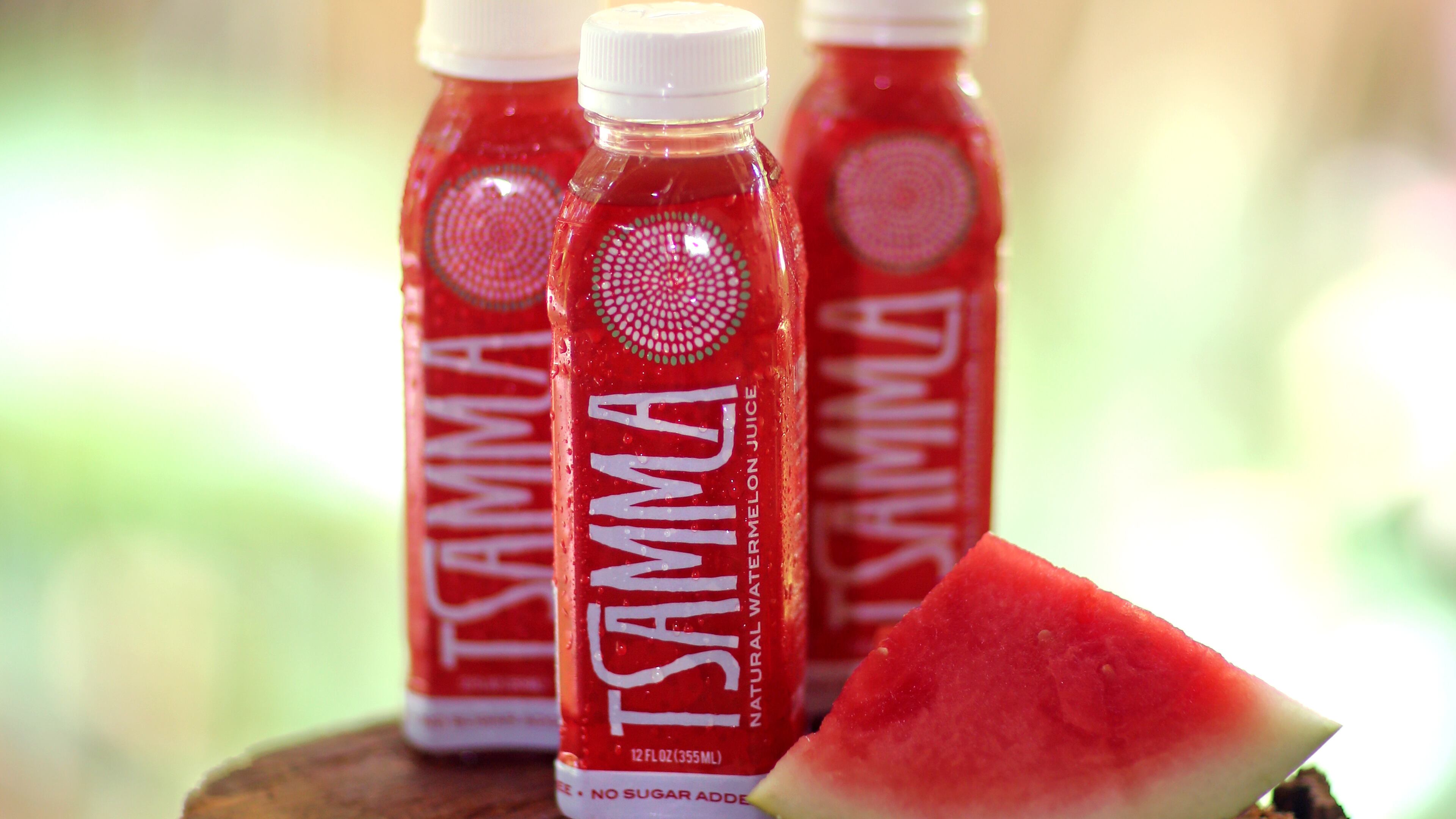Q & A: Tsamma Watermelon Juice

Watermelon juice is often skipped over for kale-powered or beet concoctions, but the benefits and taste should not be missed. It provides an anti-inflammatory effect on muscles, reduces risk of dehydration, combats indigestion and lowers risk of cardiovascular disease. Tsamma has hit shelves in Atlanta, vouching itself as the first bottled watermelon juice that is produced in America.
One pound of fresh watermelon goes into each bottle of Tsamma juice, packing a delicious flavor that is reminiscent of a watermelon Jolly Rancher. Each sip has the slightest hint of tartness, but with 95 percent watermelon juice, the overwhelming flavor is sweet, hydrating watermelon.
We talked with Sarah Frey-Talley, owner of Frey Farms, a small farm based in Keene, Illinois, about Tsamma juice.
Is Tsamma watermelon juice made from the Tsamma melon?
The juice is named after the Tsamma melon that was first cultivated in the Kalahari Desert of South Africa. Tsamma doesn’t contain juice from the Tsamma melon, but we wanted to pay homage to the ancient ancestor of all watermelon varieties.
What are the ways you manage the process from "field to bottle"?
Watermelon is such a delicate juice so it involves a lot of control with what goes into the bottle. The watermelons are first hand harvested and hand selected. Then, there’s a rigorous testing and grading process for sugar content (Brix), overall taste, flavor, etc. The melons are hand cut and after the end of the testing process, if the fruit doesn’t meet our criteria, it’s not used for Tsamma juice. The watermelon juice that we create is a grade-A premium product, so consumers can rest assured that they’re giving their bodies proper nutrition.
Which of Frey’s farms grow the melons?
The melons used for Tsamma come from seven different states throughout the United States: Florida, Georgia, Missouri, Arkansas, Indiana, West Virginia, and Illinois. We grow watermelons on all farms and use fruit during each region’s peak season.
How long is the watermelon season?
Domestic watermelons are actually produced 10 months out of the year (January and February being the typical barren months), but consumers only have access to fruit for five months. So, for our Georgia farm, we use those watermelons during Georgia’s timeframe, from April to mid-October.
When watermelons aren’t harvested, will Tsamma be available year-round?
Yes! While the watermelon fruit is only available to shoppers a few months out of the year, we gear up production of watermelons through a farming process called “hooping.” This involves growing in tunnels and protecting the fruit from frost. This allows us to produce enough melons for constant juice supply.
Tsamma is available at Atlanta-area Fresh Market stores:
Peachtree Industrial Blvd #300
Suwanee, GA 30024
3005 Old Alabama Road
Alpharetta, GA 30022
1205 Johnson Ferry Rd #109
Marietta, GA 30068
5515 Chamblee-Dunwoody Rd
Dunwoody, GA 30338
4405 Roswell Road
Atlanta, GA 30342
2099 Peachtree Road NE
Atlanta, GA 30309

